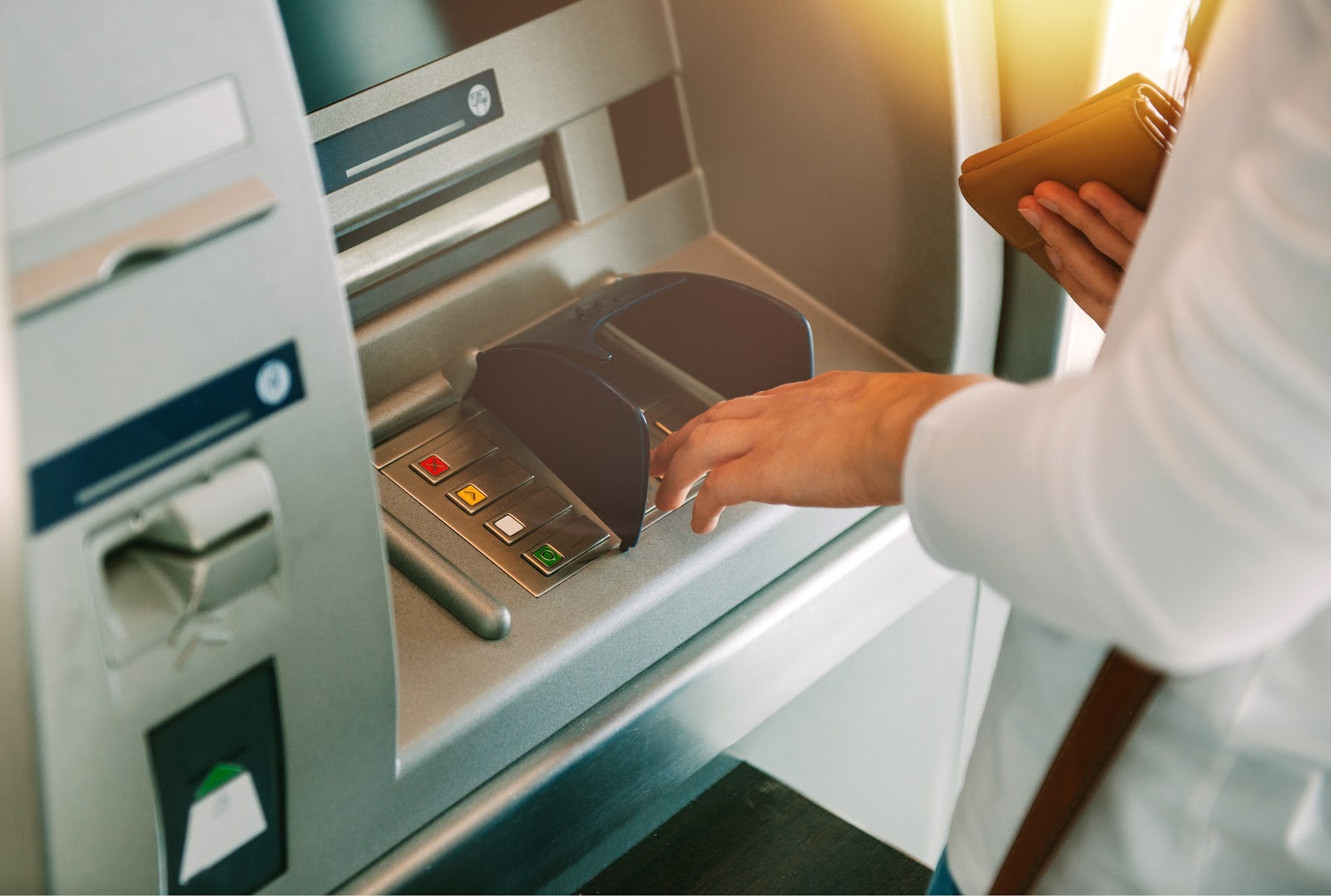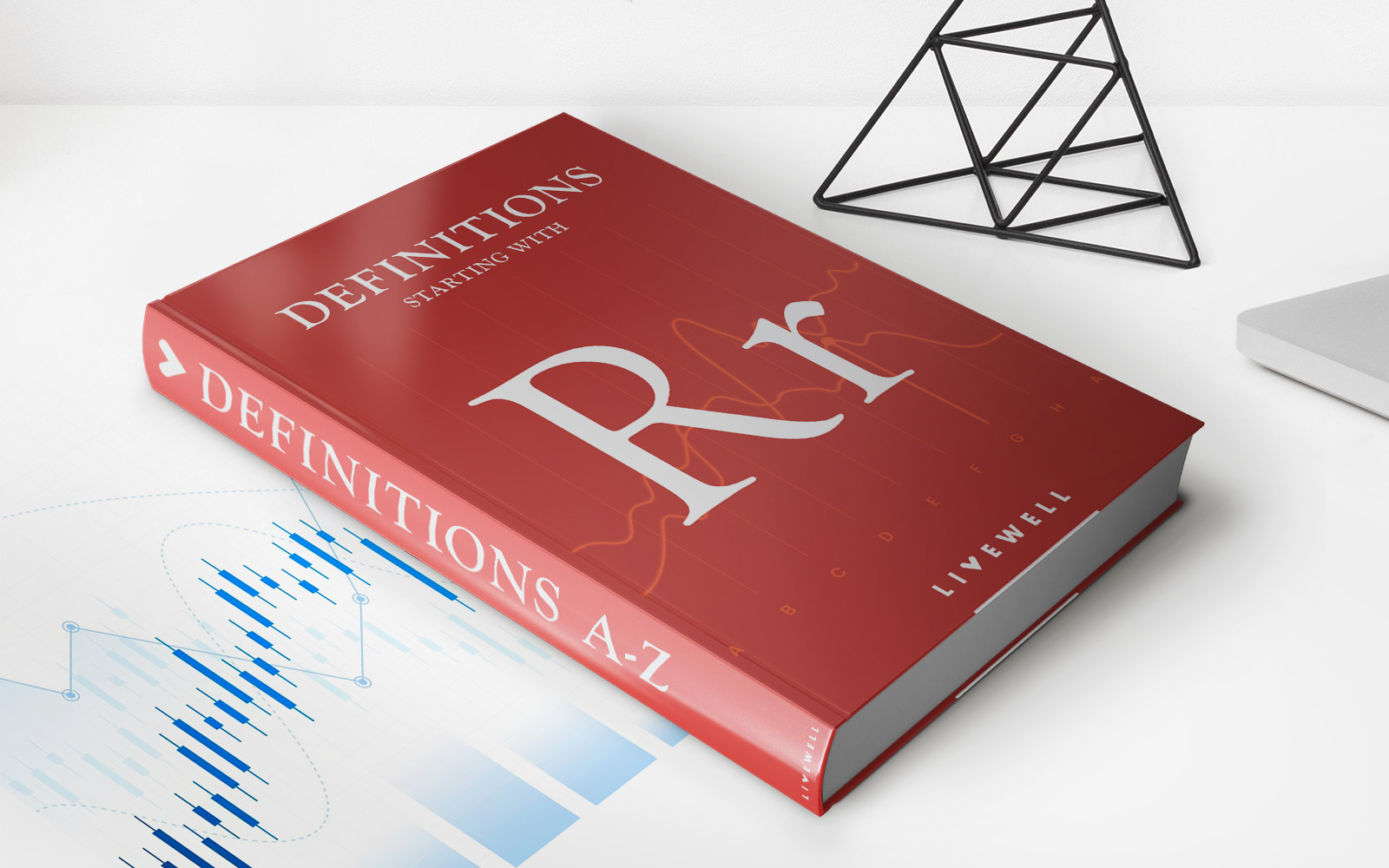

Finance
What Credit Line Credit One Approve.
Published: January 8, 2024
Discover what credit line Credit One approves and how it can help you with your finance needs. Find out more about Credit One's credit approval process.
(Many of the links in this article redirect to a specific reviewed product. Your purchase of these products through affiliate links helps to generate commission for LiveWell, at no extra cost. Learn more)
Table of Contents
- Introduction
- Understanding Credit Lines
- Credit One Credit Card Overview
- Factors that Influence Credit One’s Approval Process
- Credit Score Requirements for Credit One Approval
- Income Requirements for Credit One Approval
- Credit One’s Policy on Recent Bankruptcies
- Credit One’s Policy on Delinquent Accounts
- Common Reasons for Credit One Credit Card Denials
- Tips for Improving Your Chances of Approval with Credit One
- Conclusion
Introduction
Welcome to the world of Credit One, a well-known credit card issuer. If you’re considering applying for a Credit One credit card, or if you’ve recently applied and are awaiting approval, you may be wondering what factors will influence Credit One’s decision. Understanding the approval process can help you set realistic expectations and improve your chances of getting approved.
Credit lines are a common feature of credit cards that determine the maximum amount of credit a cardholder can access. Different credit card issuers have different policies and criteria when it comes to determining credit lines. Credit One, known for its wide range of credit card options, is no exception.
In this article, we will delve into the factors that influence Credit One’s approval process and provide you with insights into their credit score and income requirements, as well as their policies on recent bankruptcies and delinquent accounts. Additionally, we will explore common reasons why credit card applications may be denied and offer some tips to improve your chances of approval.
Understanding how Credit One evaluates credit card applications is crucial for anyone keen on securing a credit line. By arming yourself with this knowledge, you can navigate the application process more confidently and potentially increase your likelihood of being approved.
So, let’s dive in and discover what Credit One looks for when evaluating credit card applications and how you can increase your chances of approval. Whether you’re new to Credit One or considering expanding your credit line, this article aims to provide you with valuable insights and tips to help you on your credit journey.
Understanding Credit Lines
Before we delve into Credit One’s approval process, let’s take a moment to understand what credit lines are and why they are important. A credit line, also known as a credit limit, is the maximum amount of credit that a lender, such as a credit card issuer, will extend to a borrower.
When you are approved for a credit card, the credit card issuer determines your credit line based on various factors, including your creditworthiness, income, and other financial considerations. The credit line serves as a cap on the amount of money you can borrow using the credit card.
The available credit on your credit card decreases as you make purchases or withdraw cash advances. Once you reach the credit limit, you will not be able to spend any more until you pay off some of your outstanding balance, thereby increasing your available credit.
Having a higher credit line can offer several benefits. It provides you with greater purchasing power, allowing you to make larger transactions or handle unexpected expenses. Additionally, a higher credit line can positively impact your credit utilization ratio, which is the ratio of your credit card balances to your credit limits. A lower credit utilization ratio is generally preferred by lenders as it indicates responsible credit management.
It’s important to note that credit lines are not fixed indefinitely. Credit card issuers may reassess and adjust your credit line periodically based on your credit behavior and the overall market conditions.
Now that we have a clear understanding of what credit lines are and their significance, let’s delve into the specific details concerning Credit One credit cards and their approval process.
Credit One Credit Card Overview
Credit One is a popular credit card issuer that offers a range of credit cards tailored to meet the needs of different individuals. Whether you’re looking for rewards, cash back, or credit-building options, Credit One has a card for you.
One of the key advantages of Credit One credit cards is their accessibility. Credit One is known for working with individuals who may have limited or damaged credit histories. This makes their credit cards an appealing option for those who are working on building or rebuilding their credit.
Credit One credit cards often come with key features such as cash back rewards on eligible purchases, free access to credit scores, and the ability to pre-qualify without impacting your credit score. These features make Credit One credit cards attractive to individuals who are seeking to manage their finances and build credit responsibly.
Additionally, Credit One offers a variety of card designs to choose from, allowing you to select a card that aligns with your personal style. Customization options may include different colors, patterns, or even card themes.
While Credit One credit cards are widely available, it’s important to note that they typically come with higher-than-average annual fees and interest rates. However, if managed responsibly, these fees can be outweighed by the benefits and opportunities to build credit.
It’s essential to carefully review the terms and conditions of any Credit One credit card before applying. This will allow you to fully understand the fees, interest rates, and benefits associated with the specific card you are considering.
Credit One is committed to providing accessible credit options and helping individuals improve their creditworthiness. Understanding the credit card options they offer is the first step in determining whether a Credit One credit card is the right choice for you.
Factors that Influence Credit One’s Approval Process
When it comes to the approval process for Credit One credit cards, several key factors come into play. Understanding these factors can provide valuable insight into what Credit One looks for when evaluating credit card applications.
1. Credit History: Your credit history plays a significant role in Credit One’s approval process. They will review your credit report to assess your payment history, credit utilization, length of credit history, and any negative marks such as late payments or collections. A strong credit history with timely payments and low credit utilization can increase your chances of approval.
2. Credit Score: Credit One considers your credit score as a crucial factor. While specific score requirements may vary depending on the card, a higher credit score generally improves your odds of approval. A good credit score demonstrates responsible credit management and lowers the perceived risk for the credit card issuer.
3. Income: Your income level is another important consideration for Credit One. They want to ensure that you have sufficient income to make timely payments on your credit card. Higher income can indicate a greater ability to manage credit and increases your chances of approval.
4. Debt-to-Income Ratio: Credit One also evaluates your debt-to-income ratio, which is the percentage of your monthly income that goes toward paying debts. A lower debt-to-income ratio shows that you have manageable levels of debt compared to your income, making you a more attractive candidate for credit approval.
5. Employment Stability: Having a stable employment history can positively impact Credit One’s decision-making. Demonstrating steady employment with a reliable income source indicates your ability to handle financial obligations and increases your chances of approval.
6. Recent Bankruptcies or Delinquencies: Credit One considers recent bankruptcies or delinquencies as potential red flags. While they may still approve applicants with past financial difficulties, recent negative marks on your credit report can impact the approval decision.
7. Existing Credit Lines: Your existing credit lines, such as credit cards or loans, are taken into account during the approval process. Credit One will review your overall credit exposure and assess whether approving another credit card will align with your financial situation.
By understanding the factors that influence Credit One’s approval process, you can proactively work on strengthening your creditworthiness. Maintaining a positive credit history, improving your credit score, and managing your finances responsibly can significantly increase your chances of approval for a Credit One credit card.
Credit Score Requirements for Credit One Approval
Credit One, like other credit card issuers, considers credit scores as a crucial factor in their approval process. While specific credit score requirements may vary depending on the particular Credit One credit card you are applying for, there are some general guidelines to keep in mind.
Credit One is known to work with individuals who have limited or damaged credit histories. Therefore, they may be more lenient compared to other credit card issuers that have stricter credit score requirements.
Generally, a credit score in the fair to good range can increase your chances of approval for a Credit One credit card. A possible range to aim for is around 580 to 700 or higher. However, it’s important to note that credit score requirements can vary depending on other factors, such as income and credit history.
If you have a lower credit score, you may still be able to qualify for a Credit One credit card. They specialize in providing credit options to individuals looking to build or rebuild their credit. Keep in mind that credit cards designed for individuals with lower credit scores may have higher interest rates and fees. However, if managed responsibly, these cards can be valuable tools in improving your creditworthiness.
It’s worth noting that Credit One offers pre-qualification options that allow you to check whether you meet their credit score requirements without impacting your credit score. This can be a helpful step before submitting a formal credit card application.
If your credit score does not meet Credit One’s requirements, don’t be discouraged. There are steps you can take to improve your creditworthiness over time. Some strategies include making timely payments on your existing debts, minimizing credit card balances, and limiting new credit applications.
Ultimately, while credit scores are an essential factor for Credit One’s approval process, they also consider other factors, such as income and employment stability. Demonstrating responsible financial behavior and addressing any negative marks on your credit report can increase your chances of approval, even if your credit score is not in the ideal range.
Remember, credit scores are just one piece of the puzzle. It’s important to carefully review the terms and conditions of any Credit One credit card before applying and ensure that it aligns with your financial goals and needs.
Income Requirements for Credit One Approval
When applying for a Credit One credit card, your income plays an important role in the approval process. Credit One wants to ensure that you have sufficient income to make timely payments on your credit card and handle any financial obligations. While specific income requirements may vary depending on the credit card you are applying for, there are some general guidelines to keep in mind.
Credit One typically requires applicants to have a minimum annual income to be considered for approval. This minimum income requirement helps ensure that you have the means to manage your credit card responsibly and make regular payments.
The specific income requirement can vary based on the credit card you’re applying for and your overall financial situation. Some Credit One credit cards may have lower income requirements, making them accessible to a wider range of individuals, especially those who are building or rebuilding their credit.
It’s important to accurately report your income when applying for a credit card. Providing false or misleading information about your income can not only lead to a denial of your application but also potential legal consequences.
Your income can include various sources, such as employment wages, self-employment income, government benefits, or other verifiable income streams. Credit One typically considers your gross income, which is the total income before any deductions.
If your income does not meet the specific requirements for the Credit One credit card you’re interested in, it doesn’t necessarily mean an automatic denial. Credit One takes into account various factors, such as your credit history, debt-to-income ratio, and employment stability, in addition to your income. Demonstrating responsible credit behavior and a strong overall financial profile can offset any income limitations.
Additionally, if your individual income falls short of the requirements, you may consider applying for a joint credit card with a spouse or partner who meets the income criteria. This allows you to pool your resources and potentially meet the income requirements for approval.
Lastly, keep in mind that income requirements are just one aspect of the approval process. Credit One evaluates multiple factors to make their decision, and a strong credit history and responsible credit behavior can have a significant impact on your chances of approval.
Before applying for a Credit One credit card, carefully review the income requirements for the specific card you’re interested in and ensure that you meet or exceed them. This will help set realistic expectations and increase your chances of a successful application.
Credit One’s Policy on Recent Bankruptcies
Bankruptcy can have a significant impact on your creditworthiness and may affect your ability to get approved for a new credit card. When it comes to recent bankruptcies, Credit One has specific policies and considerations in place.
Credit One understands that financial difficulties can arise, and they may still consider applicants who have recently filed for bankruptcy. However, it’s essential to note that each credit card application is evaluated on a case-by-case basis, taking into account various factors.
Typically, Credit One will assess how recent the bankruptcy filing is and the overall financial circumstances surrounding the bankruptcy. They will also consider your efforts to rebuild your credit since the bankruptcy discharge.
A recent bankruptcy may pose a higher risk to lenders, and it may impact the credit terms that you are offered. This can include factors such as higher interest rates, higher annual fees, or a lower credit line. These terms are often associated with credit cards designed for individuals who are rebuilding their credit.
It’s important to note that the specific policies and considerations regarding recent bankruptcies may vary across Credit One credit cards. Therefore, it’s crucial to review the terms and conditions of the specific credit card you are interested in to understand how recent bankruptcies are considered.
If you have recently filed for bankruptcy and are considering a Credit One credit card, it’s advisable to take steps to rebuild your credit before applying. By demonstrating responsible credit behavior, such as making timely payments on any remaining debts, managing your finances wisely, and maintaining a positive credit history, you can enhance your chances of approval.
It’s worth mentioning that while a recent bankruptcy may present challenges in getting approved for new credit, it is not a permanent barrier. With time and responsible credit management, you can work towards rebuilding your credit and improving your overall financial standing.
Ultimately, if you have filed for bankruptcy, it’s important to carefully consider your current financial situation and assess whether you’re ready for a new credit card. If you decide to proceed, understanding Credit One’s policies on recent bankruptcies can help set realistic expectations and guide your application process.
Credit One’s Policy on Delinquent Accounts
When applying for a credit card, including those offered by Credit One, your credit history and the management of your past accounts play a crucial role in the approval process. Credit One, like other credit card issuers, has a specific policy regarding delinquent accounts.
A delinquent account refers to a credit account on which a payment is past due. It indicates that the account holder has failed to make payments within the agreed-upon timeframe. Delinquencies can be reported on your credit report and can negatively impact your credit score.
Credit One evaluates credit card applications with a consideration for any past delinquent accounts. They will review your credit report to assess the frequency, severity, and recency of any delinquencies. The presence of delinquent accounts may raise concerns for the lender and affect their decision on whether to approve your credit card application.
While each application is reviewed individually, having a delinquent account in your credit history may decrease your chances of approval. This is because delinquencies indicate a higher risk for the credit card issuer, as it suggests a potential inability to manage credit responsibly.
It’s important to note that the specific impact of delinquent accounts on your credit card application can depend on various factors, including the type of delinquencies, the length of time since the delinquencies occurred, and the overall financial picture reflected in your credit history.
If you have delinquent accounts in your credit history, it’s advisable to take steps to address them before applying for a Credit One credit card. This can include making arrangements to pay off the outstanding balances or working with the respective creditors to establish a repayment plan.
Additionally, demonstrating improved financial habits and maintaining a positive payment history after the delinquencies can help improve your creditworthiness. It may take time for the positive changes to reflect on your credit report, but it can significantly enhance your chances of approval in the long run.
It’s essential to be transparent in your credit card application and provide accurate information about any delinquent accounts. Providing false information can lead to the denial of your application and potential legal consequences.
Remember, credit card issuers like Credit One assess the overall risk and creditworthiness of applicants. While past delinquent accounts may pose challenges, a strong credit history, positive payment patterns, and responsible credit management can help mitigate the impact and improve your chances of approval.
Common Reasons for Credit One Credit Card Denials
Applying for a credit card can be an exciting step towards managing your finances and building credit. However, it’s important to be aware of the common reasons for credit card denials, including when it comes to Credit One credit cards. Understanding these reasons can help you avoid potential pitfalls and increase your chances of approval.
1. Low Credit Score: One of the primary reasons for credit card denials is a low credit score. Credit One, like other credit card issuers, considers creditworthiness when evaluating applications. If your credit score falls below their minimum requirements or is significantly impacted by negative marks such as late payments or collections, it may result in a denial.
2. Insufficient Income: Credit One assesses your income to ensure you have the means to make payments on your credit card. If your income does not meet their minimum requirements or cannot support the credit line you are seeking, it can lead to a credit card denial.
3. Recent Bankruptcy or Delinquencies: As mentioned earlier, recent bankruptcies or delinquent accounts may raise concerns for credit card issuers. While Credit One may be more lenient towards applicants with past financial difficulties, recent negative marks on your credit report can impact the approval decision.
4. High Debt-to-Income Ratio: A high debt-to-income ratio indicates that you may already have a significant amount of debt compared to your income. This can be a red flag for credit card issuers, including Credit One, as it may suggest a higher risk of defaulting on payments. It’s crucial to manage your debts responsibly and aim for a healthy debt-to-income ratio to avoid a credit card denial.
5. Insufficient Credit History: If you have limited credit history, it can be challenging for credit card issuers to assess your creditworthiness. Credit One may require a certain level of credit history to evaluate your creditworthiness effectively. Building a positive credit history through responsible credit management and timely payments can increase your chances of approval.
6. Inaccurate Application Information: Providing inaccurate or incomplete information on your credit card application can lead to a denial. It’s essential to take the time to carefully review and accurately fill out the application, ensuring that all details are correct and up to date.
7. Existing Credit Lines: Having excessive credit card debt or a high number of existing credit lines may raise concerns for credit card issuers. If your credit report shows a significant amount of outstanding debt or multiple recent credit inquiries, it can affect your chances of approval for a new credit card with Credit One.
It’s important to keep in mind that meeting the minimum requirements and avoiding these common pitfalls does not guarantee approval. Credit One evaluates applications holistically, considering a variety of factors. Providing a strong credit history, demonstrating responsible financial behavior, and maintaining a positive payment history are key steps to improve your chances of credit card approval.
If your application is denied, it’s essential not to get discouraged. Take the time to understand the reasons for the denial and work on improving your financial standing. Address any issues highlighted in the denial letter or email and continue to work towards building a stronger credit profile.
Tips for Improving Your Chances of Approval with Credit One
If you’re looking to improve your chances of approval for a Credit One credit card, there are several steps you can take to enhance your creditworthiness. Consider implementing the following tips to increase your likelihood of approval:
- Check your credit report: Obtain a copy of your credit report and review it for any errors or inconsistencies. Dispute any inaccuracies to ensure your credit report reflects accurate information.
- Build a positive credit history: Establish a track record of responsible credit use by making timely payments on your existing debts, such as loans or other credit cards. Consistent, on-time payments demonstrate to Credit One that you are a reliable borrower.
- Manage your credit utilization: Aim to keep your credit card balances low in relation to your credit limits. By utilizing only a small portion of your available credit, you show Credit One that you can manage your debts responsibly.
- Pay off outstanding debts: Prioritize paying off any outstanding debts, such as collections or past-due accounts. Lowering your overall debt load improves your debt-to-income ratio and enhances your creditworthiness.
- Increase your income: Consider opportunities to boost your income, whether through a raise, side gig, or part-time job. A higher income can demonstrate to Credit One that you have the means to make payments on a credit card.
- Apply for pre-qualification: Before submitting a formal credit card application, take advantage of Credit One’s pre-qualification option. This allows you to check if you meet their eligibility criteria without impacting your credit score.
- Consider a secured credit card: If you’re finding it challenging to get approved for an unsecured credit card, consider applying for a secured credit card. This type of card requires a security deposit, which reduces the lender’s risk and can help you build or rebuild your credit.
- Ensure accuracy in your application: When applying for a Credit One credit card, double-check that all the information you provide is accurate and up to date. Inaccurate or incomplete information can result in a denial.
- Be patient and persistent: Building credit takes time and requires patience. Even if your initial application is denied, continue to work on improving your credit history and reapply in the future when you have a stronger financial profile.
Remember, while these tips can improve your chances of approval, there is no guarantee of acceptance. Each credit card application is evaluated individually, and Credit One considers multiple factors in their decision-making process.
By implementing these valuable tips and taking steps to build a solid credit foundation, you can enhance your creditworthiness not only for Credit One credit cards but also for other financing opportunities in the future.
Conclusion
Understanding the factors that influence the approval process for Credit One credit cards is essential for anyone considering applying for a credit line. By familiarizing yourself with Credit One’s credit score and income requirements, policies on recent bankruptcies and delinquent accounts, and common reasons for credit card denials, you can position yourself for success.
While Credit One is known for working with individuals who have limited or damaged credit histories, it is still important to have a solid financial foundation. This includes maintaining a good credit score, managing your debts responsibly, and having a stable income. Taking steps to improve your creditworthiness, such as making timely payments, reducing credit card balances, and addressing any negative marks on your credit report, can significantly increase your chances of approval.
It’s important to remember that credit card approval is not guaranteed, and each application is evaluated on a case-by-case basis. Credit One considers various factors, including credit history, income, employment stability, and existing credit lines when making their decision.
To improve your chances of approval, check your credit report regularly, build a positive credit history, and manage your debts responsibly. Additionally, consider options like pre-qualification and secured credit cards if necessary.
If your application is denied, don’t be discouraged. Take the time to understand the reasons for the denial, continue working on improving your credit, and consider reapplying in the future when you have a stronger financial profile.
Remember, responsible credit management and financial planning are ongoing processes. By taking the necessary steps to build and maintain a strong credit foundation, you can enhance your creditworthiness not only for Credit One credit cards but for future financial opportunities as well.
Be patient, persistent, and proactive in managing your credit, and you’ll be on your way to achieving your financial goals with Credit One and beyond.














